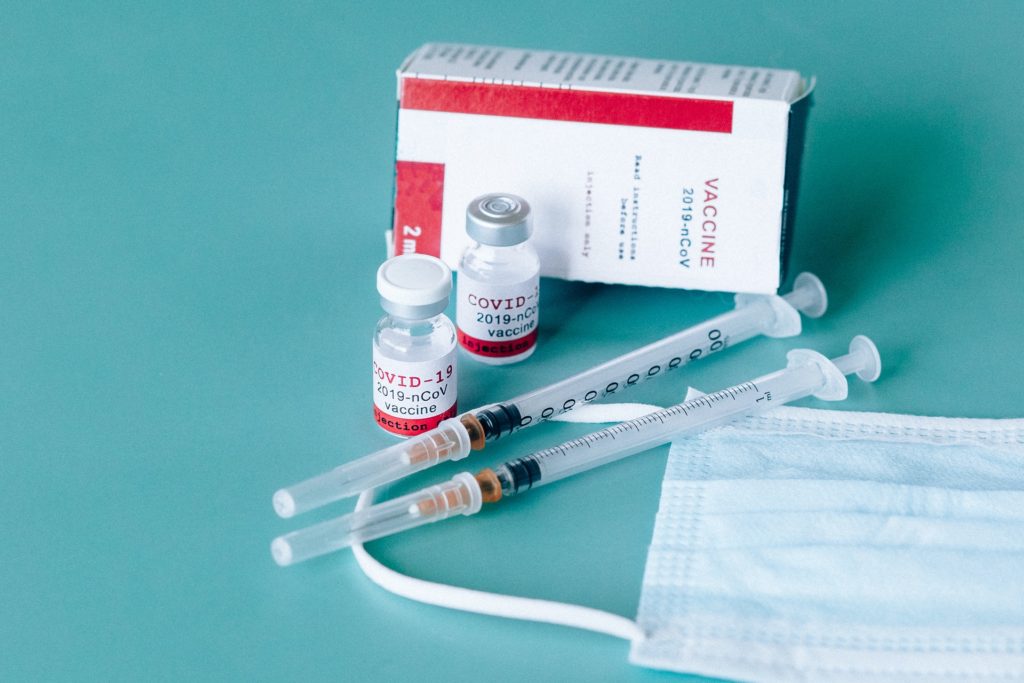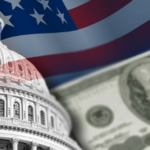In an effort to curb the rapid spread of the coronavirus, the federal government has invested billions of dollars in the research and development of the Covid-19 vaccine. And to ensure wide-scale immunization, the federal government has purchased millions of multiple Covid-19 vaccine doses and distributed them to providers for free, who will then administer to individuals.
Now:
You’re probably wondering if your health insurance will cover the Covid-19 vaccine or if the vaccine will carry unexpected costs like co-pays. Well, here’s how your health insurance covers the Covid-19 vaccine and how you can get coverage.

Will Health Insurance Cover The COVID-19 Vaccine?
Early in the pandemic, the federal government passed laws to ensure everyone would receive the vaccine at zero cost, regardless of their insurance status. Whether you’re insured or uninsured, you will be able to receive a Covid-19 vaccine at no cost over the public health emergency period, which is currently effective through April 20, 2021.
While it’s unclear how much the Covid-19 vaccine will cost after the public health emergency duration ends, you should expect a change in coverage that may require you to pay part of the administration costs. As such, it’s crucial that you understand specifics about your health insurance plan.
While health insurance plans vary, listed below are some general guidelines.
- Private Health Insurance
If your plan is private health insurance, the COVID-19 vaccine will be covered as a preventive service. This means that if you’re insured by a private health plan through your employer’s group insurance plan or through an ACA marketplace plan, your insurer will provide coverage for the Covid-19 vaccine without cost-sharing as required by the essential health benefits guidelines.During the PHE, if you’re in an individual plan or non-grandfathered group, your carrier is required to offer coverage for your Covid-19 vaccine whether the vaccination is done by an in-network or out-of-network vaccine provider. This benefit falls under ACA’s preventive care guidelines.Several insurance carriers such as Blue Cross Blue Shield and Aetna have already stated that they will not charge people for the Covid-19 vaccine or its administration.However, you may be charged a deductible, coinsurance, or copayment for vaccine administration if your doctor’s visit includes additional, non-COVID-19 health care services. - SHBP and SEHBP Plans
If you are covered by SEHBP or SHBP, your insurer will provide coverage for the coronavirus vaccine and its administration without deductible or coinsurance for in or out of network providers. - Medicare and Medicare Advantage plans
If you have a Medicare health plan under part B or a Medicare Advantage plan, the coronavirus vaccine and its administration will be covered at 100 percent with no cost-sharing under the CARES Act.Typically, Medicare Advantage plans offer the same basic coverage as those under Medicare Parts A and B, meaning you’ll get the same coverage as a Medicare Advantage plan beneficiary. However, your Medicare Advantage plan’s coverage may need you to use a provider in your plan’s network. - Medicaid
For Medicaid programs, Covid-19 vaccine administration will be covered in full for the public health emergency period. This will vary based on your eligibility category, which in most cases will comprise adults and children under ACA’s traditional Medicaid and the Medicaid expansion.Also, the coverage will include the Coronavirus vaccine and its administration without cost-sharing for both in and out of network providers.However, the coverage requirement does not apply to limited benefit Medicaid plans like ones that offer Medicaid coverage for tuberculosis services or family planning services only. - Exceptions
ACA-unregulated plans are exempt from the government’s vaccine coverage requirement. However, some of these insurers may willingly offer coverage for the Covid-19 vaccine or its administration during and even after the public health emergency.These health insurance plans include:- Farm Bureau plans
- Short-term medical plans
- Health care sharing ministry plans
- Fixed, limited coverage indemnity plans
Can I Receive A COVID-19 Vaccine Without Any Health Insurance Cover?
Although there is no federal requirement that carriers offer coverage for the Covid-19 vaccine to uninsured Americans, the government has provided funding for COVID-19 vaccine administration to the uninsured people.
“What makes the vaccine protections unique is that there are requirements on both the insurers and the providers. It’s a belt-and-suspenders approach that makes the consumer protections much stronger,” stated Karyn Schwartz, a senior fellow at the Kaiser Family Foundation.
This means that you’ll be able to receive the Covid-19 vaccination even if you’re uninsured under the Health Resources and Services Administration (HRSA) COVID-19 Uninsured Program.
Then the provider submits a reimbursement claim for the administration service to the federal Provider Relief Fund. The U.S. Department of Health and Human Services (HHS) handles the fund and is responsible for reimbursing healthcare providers.
However, you may be charged by the provider, if they don’t submit a bill to the Provider Relief Fund for reimbursement.
“If the provider doesn’t submit a bill for COVID-19-related testing and/or treatment to the HRSA COVID-19 Uninsured Program, or the care was not eligible for reimbursement from the program, the patient may be responsible for full payment of the bill,” stated the HRSA spokesperson.
With that in mind, if you’re insured and you get a bill for your COVID-19 vaccine, you should consider filing a claim with your insurance provider. On the other hand, if you’re uninsured, it is important that you find a provider who is in the Provider Relief Fund.
Will The Covid-19 Vaccine Continue To Be Free After The Pandemic?
The COVID-19 vaccine will remain free through the public health emergency period. The COVID-19 vaccine will become licensed as part of preventive care after the public health emergency is over, which will make its reimbursement rules similar to other vaccines.
Under the 2010 Affordable Care Act (ACA), routine immunizations should be covered as a preventive service in all ACA-compliant health plans, without any out-of-pocket cost.
If you’re covered by an individual plan or through your employer, you will be able to receive the Covid-19 vaccine from your plan’s in-network providers with no member cost-sharing even after the public health emergency ends.
Also, if you have a Medicare Advantage plan, you will still be able to receive the vaccine from your plan’s in-network providers with no cost-sharing after the public health emergency duration is over.
On the other hand, Medicaid’s COVID-19 vaccine coverage could vary greatly based on someone’s eligibility category once the national public health emergency period ends.
But the majority of Medicaid beneficiaries will likely continue to receive COVID-19 vaccine administration at zero-cost. This, in most cases, will comprise children and eligible adults under the ACA’s expansion of Medicaid. But not an adult whose eligibility is based on disability, being a minor’s caretaker or parent, or pregnancy.
However, ACA rules don’t apply to some of the plans like short-term health plans. If you have such a health insurance plan, your plan may require you to cover a part of the cost for the COVID-19 vaccine or even the full cost of the Covid-19 vaccine and its administration.
Health Insurance Options After Losing Your Job-Based Health Plan
If you’re uninsured because you were laid off during the pandemic and ended up losing your health coverage, you have several health insurance options you can choose from to ensure you get coverage. Your health coverage options include:
- COBRA Coverage
COBRA is designed to let employees continue with their employer-based insurance plan for up to 18 months after losing their jobs. This means that if you lost your job-based health insurance after your position in the company ended, you still have the chance to extend your coverage for an additional 18 months.The good thing about COBRA coverage is that it provides coverage for you and everyone else who was in your health plan. COBRA makes a great option to fill the gap in coverage while you’re looking for a long-term insurance plan.You typically have about 60 days from the date your job-based coverage ends to enroll in COBRA coverage. - Affordable Care Act Plans
Typically, people are only allowed to apply for or buy health insurance during the Open Enrollment period. But losing your existing coverage due to a job loss qualifies you for a special enrollment period, allowing you to apply for an ACA plan outside the Open Enrollment period.The Special Enrollment Period allows you up to 60 days to choose and apply for your new ACA plan. At HST our best-in-class team of knowledgeable agents can help you navigate through the arduous process of understanding insurance coverage plans and funding the right policy for your specific needs. - Short-term Health Insurance
While short-term insurance offers you limited medical coverage, it makes a great option to get coverage until you find major health insurance. The best thing about short-term insurance plans is that you can apply at any time, so you don’t have to be eligible for a Special Enrollment period or wait for Open Enrollment to enroll.What’s more, a short-term plan guarantees to give you coverage for up to 12 months. And depending on the state you reside in, you can choose to renew coverage if you like.
Get The Best Health Plan From Top Insurers
During the public health emergency, the COVID-19 vaccine will come at no cost for all Americans, whether you’re covered by private health insurance, Medicare, Medicaid, or even uninsured. Besides that, administration costs for all appointments related to Covid-19 vaccination will be free as well.
After the public health emergency ends, the coverage may continue as a preventive service for those on private health insurance or Medicare. This means that you won’t pay anything to receive the vaccination even after the public health emergency period.
However, if you’re uninsured, you could find yourself facing a hefty cost for the vaccine and its administration after the PHE period.
Not sure which plan is best for you? At Vanderbilt Healthcare Solutions our seasoned brokers take pride in the fact that we never lost the human touch and our high-end advisers rely upon unrivaled industry knowledge to assure our clients are covered with customized, clear policies that exceed their needs.




